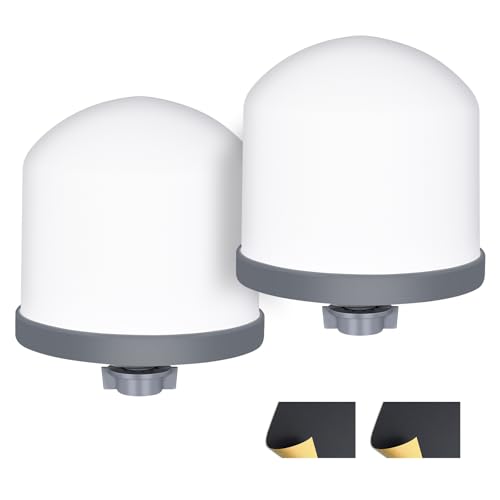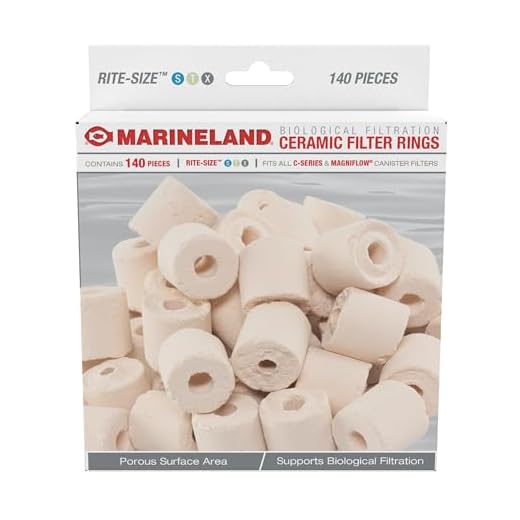




Cost Considerations
When considering a ceramic filter, the price is often a major factor for buyers. It’s essential to set a budget that aligns with your filtration needs while keeping in mind the longevity and effectiveness of the product. While lower-priced options may appear attractive, they often compromise on quality and longevity. Investing a bit more in a durable filter could save money in the long run, as it may require less frequent replacements and provide better filtration efficiency.
The quality-to-cost ratio plays a significant role in the purchasing decision. Understanding the materials used in the ceramic filters can aid in determining their value. Higher-quality filters often use superior ceramic that can remove a broader range of contaminants. Researching the features and performance metrics can help establish whether the higher price tag is justified, ultimately influencing your choice to go for a more reliable product or stick with budget-friendly options.
Analyzing the Price vs. Quality Ratio
When selecting a ceramic filter, understanding the relationship between price and quality is crucial. A higher price does not always guarantee superior performance. Conversely, cheaper options may compromise efficiency or durability. It is essential to assess features, material quality, and potential longevity when evaluating products. Reading customer reviews and expert evaluations can also provide insights into whether the cost aligns with the expected benefits.
The price-to-quality ratio varies among brands and models. It is wise to look for filters that offer the best value rather than simply the lowest price. Consider long-term use and maintenance costs as these can significantly impact overall expenditure. A filter with a higher upfront cost may deliver better filtration capacity and reduced need for replacements. Balancing these factors allows for a more informed decision that meets both budgetary constraints and filtration needs.
Brand Reputation
When selecting a ceramic filter, it is essential to consider the reputation of the brand. Established brands often have a track record of reliability and customer satisfaction. Their history in the market can provide insight into the quality of their products and their commitment to performance. Many reputable manufacturers invest in research and development, ensuring their filters meet or exceed industry standards.
Consumer reviews are a valuable resource for gauging brand reputation. Examining feedback from other buyers helps identify common strengths and weaknesses associated with specific manufacturers. It can also reveal insights on the durability of the filters and their effectiveness in removing impurities from water. Engaging with customer experiences assists in making informed decisions, ultimately leading to a satisfactory purchase.
How to Research and Evaluate Manufacturers
Understanding the reputation of manufacturers is key to finding a reliable ceramic filter. Start by checking online reviews from various sources. Look for feedback on performance, durability, and customer service. Engaging with user forums or social media groups can also provide firsthand experiences that are invaluable.
Exploring the manufacturer’s history adds another layer to your evaluation. Investigate how long they have been in the industry and any notable achievements or innovations. Certifications from recognized organizations can indicate a commitment to quality. Additionally, consider reaching out directly to manufacturers with any questions. Effective communication can give insights into their support system and responsiveness.
Certifications and Standards
When purchasing a ceramic filter, it’s essential to consider the various certifications and standards that guarantee quality and safety. Look for filters that comply with national and international regulations, such as NSF International and the Water Quality Association. These certifications often indicate that the product has undergone rigorous testing for contaminants and has met specific performance criteria. Ensuring that a ceramic filter adheres to recognized standards not only affirms its efficacy but also enhances consumer confidence in its reliability.
Understanding the importance of compliance in water filtration can significantly impact your decision-making process. Products that possess verified certifications demonstrate that they have been evaluated by independent third parties for their ability to effectively remove impurities from water. This assures consumers of the filter’s performance claims, making it a crucial factor when selecting the right ceramic filter. Prioritizing certified products can lead to better water quality, contributing to overall health and well-being.
Importance of Compliance in Water Filtration
Water filtration systems must adhere to specific standards to ensure safety and effectiveness. Compliance with regulations established by recognized organizations assures consumers that the product meets required performance standards. A filter that lacks certification may not effectively remove contaminants or could release harmful substances back into the water, potentially posing health risks.
Choosing a filter with appropriate certifications reflects a commitment to quality and consumer safety. Organizations such as NSF International and the Water Quality Association set benchmarks for water filtration systems. Filters that meet these criteria undergo rigorous testing, which means buyers can have greater confidence in their performance and reliability, ensuring the water they consume is clean and safe.
FAQS
What should I consider when evaluating the cost of a ceramic filter?
When evaluating the cost of a ceramic filter, consider both the purchase price and the long-term maintenance costs. Look for a balance between affordability and quality to ensure you’re investing in a filter that meets your needs.
How can I determine the price vs. quality ratio for ceramic filters?
To determine the price vs. quality ratio, compare different filters based on their features, effectiveness, and customer reviews. Look for filters that offer good filtration performance at a reasonable price, without compromising on durability and reliability.
Why is brand reputation important when buying a ceramic filter?
Brand reputation is important because reputable manufacturers are more likely to produce high-quality products. Researching the brand’s history, customer feedback, and market presence can help you make an informed decision.
What are the best ways to research and evaluate manufacturers of ceramic filters?
To research and evaluate manufacturers, check online reviews, visit their websites for product information, and look for third-party certifications. Additionally, forums and social media can provide insights from other customers’ experiences.
Why are certifications and standards crucial in the water filtration process?
Certifications and standards are crucial because they ensure that the ceramic filter meets specific safety and performance benchmarks. Compliance with these standards guarantees that the filter effectively removes contaminants and is safe for use in drinking water.
Related Links
Why Ceramic Filters Are Considered Effective Water Purifiers
What Are the Advantages of Using Ceramic Water Filters
Roundup of Popular Ceramic Filter Brands
Top 10 Ceramic Water Filters Reviewed
Review of the Best Ceramic Filters on the Market
